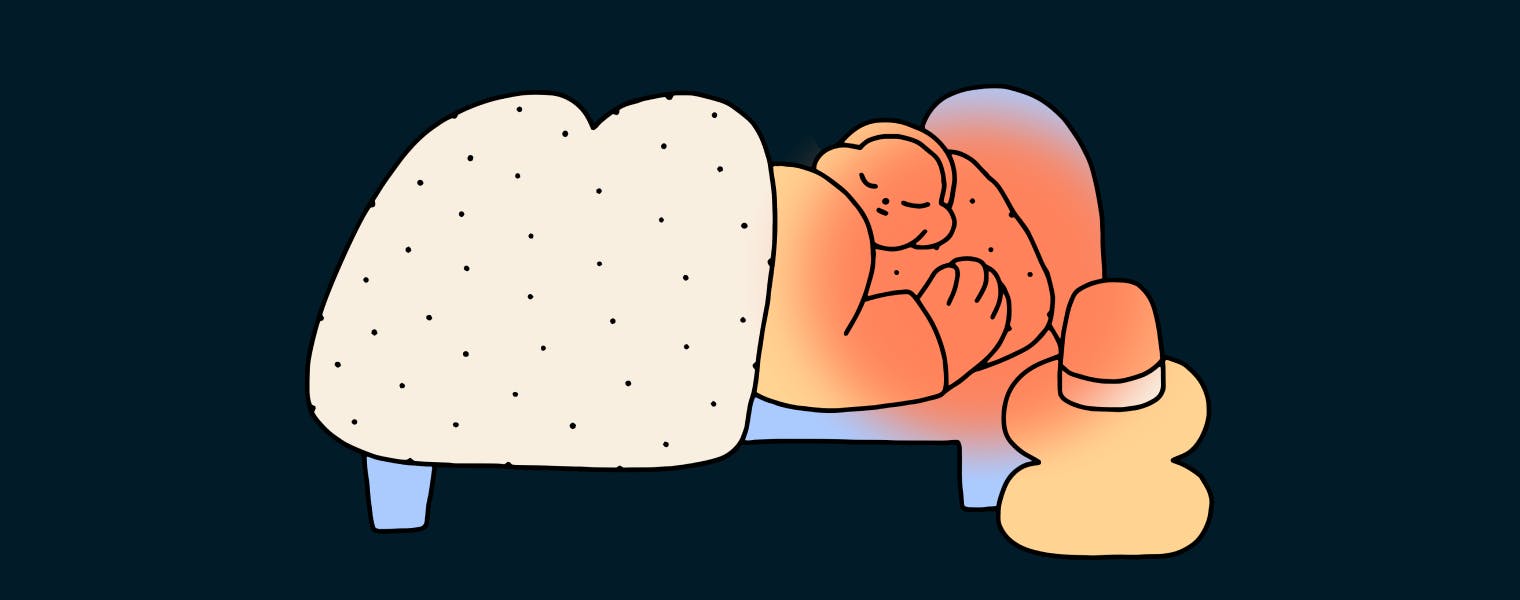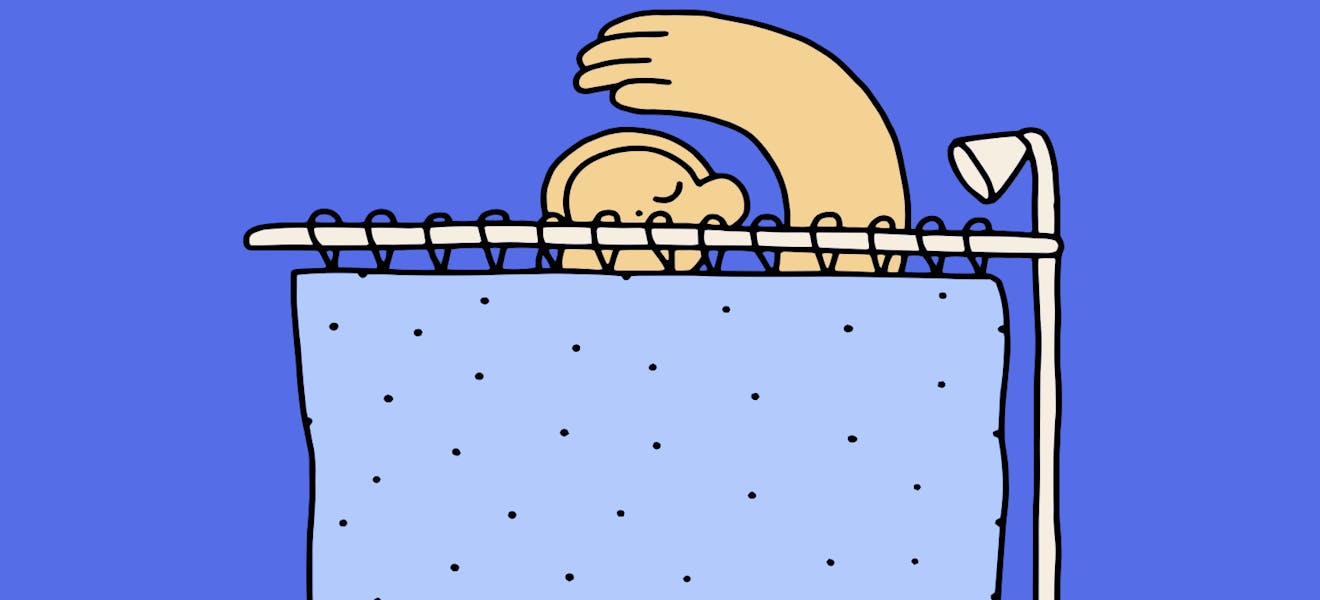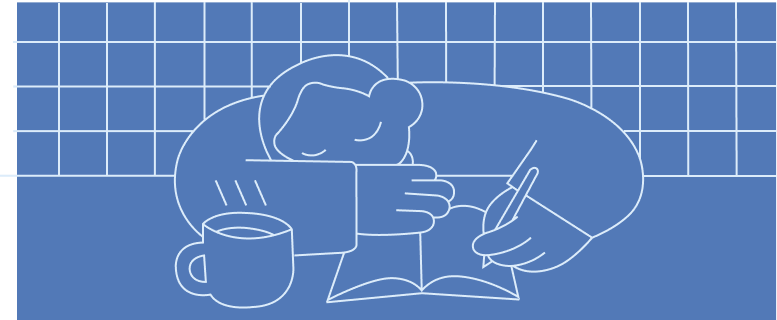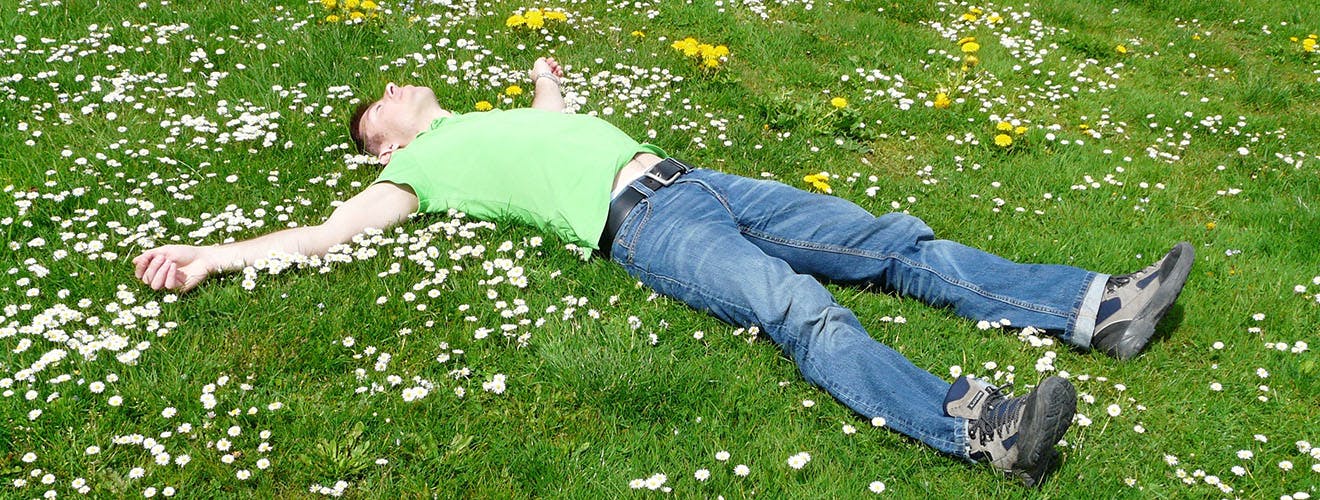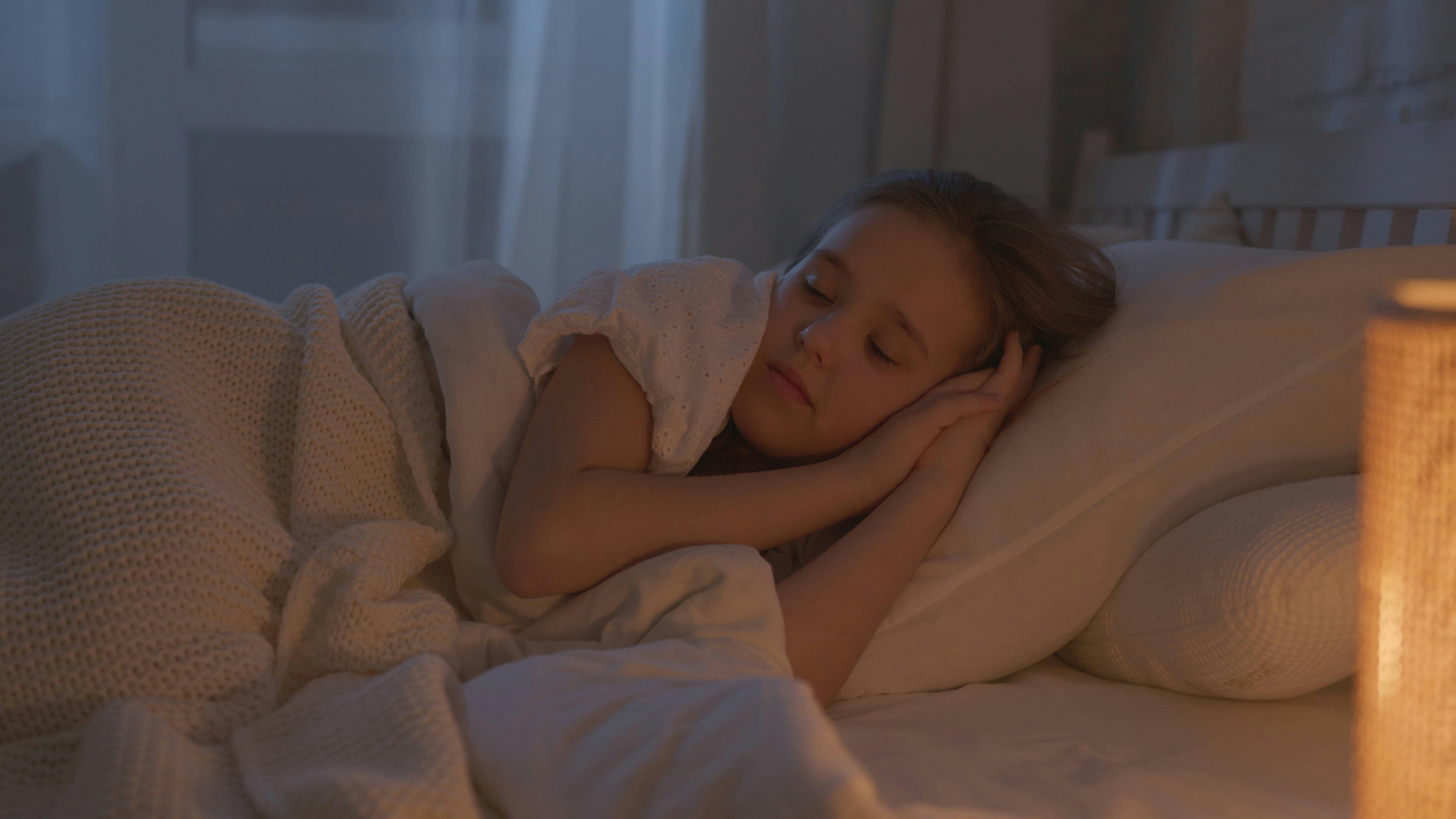The Sleep Hygiene Checklist: Your Guide to Good Sleep
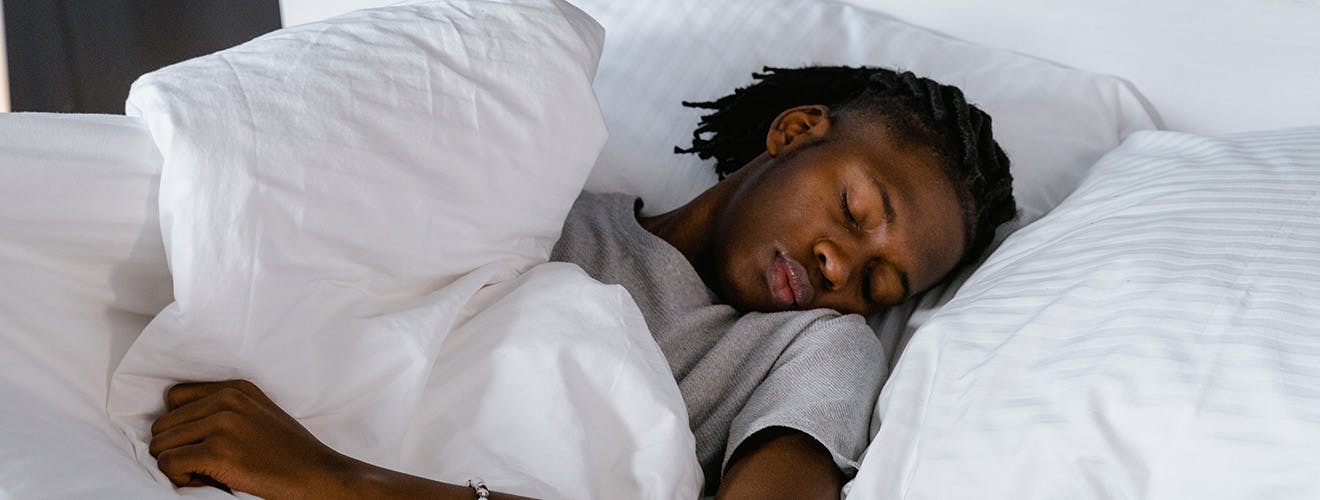
Looking for a good sleep guide? We've got you covered. Below, you'll find our original list of healthy bedroom habits. Whether it's creating a relaxing bedtime routine or finding the right kind of accessories to help you stay asleep, we've got it all. Refer to this sleep hygiene checklist to achieve the quality sleep you deserve.
What is Sleep Hygiene?
Sleep hygiene refers to a healthy bedroom environment and healthy sleep habits that promote good quality of sleep. Proactively thinking about your sleep hygiene and adjusting it to suit your needs can directly influence your sleep quality, which has a drastic impact on your overall well-being.
Not only will these behaviors help you achieve the kind of sleep you crave, but they'll also impact your ability to perform responsibilities during waking hours. At the same time, making changes in your routine to protect your sleep hygiene will help alleviate stress and anxiety - two of the most common threats to quality sleep.
10 Best Sleep Hygiene Tips
Listed below are some quality sleep hygiene tips to help us achieve better sleep.
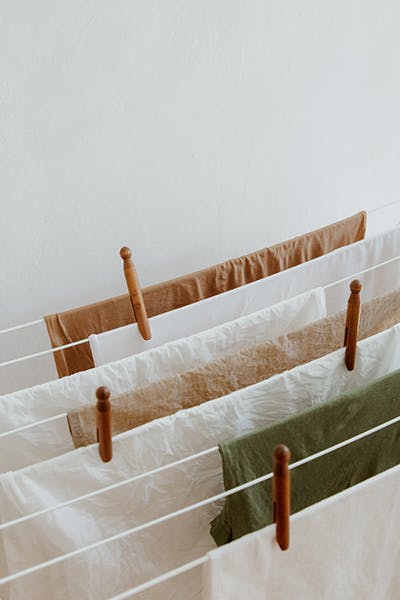
1. Controlling Light
Light has a major impact on our sleep. From an evolutionary perspective, light is a stimulus for awareness and attention. If there's too much light around, you're unlikely to get a good night's sleep.
Bright light affects our nervous system by keeping our brain alert and impacting our circadian rhythm, our internal body clock. That's why it's recommended to avoid bright lights before bedtime.
The first step for catering to light is to allow as little light as possible in your room; that is, try sleeping in complete darkness. Investing in black-out curtains can pay off in the long run.
Before you go to bed, you can try dimming out the lights so your body can slowly wind down before it's pitch black. If you have trouble sleeping in the dark, you can use a warm-colored, low-luminance light bulb.
Warm hues such as red enhance melatonin production that helps your sleep quality and may help you relax while getting a shuteye.
2. The Right Mattress
A good mattress provides support for your body during sleep. How firm, or how hard you like it is a matter of personal preference. However, the experts maintain you should stick to something that provides a stable and even surface. That will help keep your spine aligned and relaxed during sleep, so your posture isn't affected, and your body remains in an optimal position. A comfortable mattress can also reduce any possible back pain that commonly occurs for people during sleep.
3. Sheets Matter
Sleep tight, and don't let the bedbugs bite. That's what they say, at least. As a general rule, you should wash your bed linens every two weeks to ensure you are not sleeping in a pool of bacteria. Warm water is ideal for cleaning your sheets, ensuring the material isn't destroyed. Ironing your bed sheets after a wash is also a good idea because not only does the process kill the remaining bacteria, but it also makes your bed look inviting and neat. You can also upgrade to a more quality material for ultimate comfort.
4. Sound
Just like light, sounds have a huge impact on our sleep quality. Too much background noise and sudden, loud sounds can cause major sleep disturbances. Fortunately, there are a few steps we can take to preserve our quality of sleep.
Adding soft surfaces such as carpets and cushions in our room will absorb sounds around us and block out background noise.
Other steps can include insulating our windows, turning off unnecessary electronic appliances that give out constant static noises, and turning off alerts on our smart gadgets. It is best to sleep in silence, but if that isn't an option, you can also use sounds to enhance sleep if that isn’t an option.
Pink noise and white noise are known to be most conducive when it comes to sleep quality. There are soothing music playlists available that you can use to relax your mind when trying to sleep.
5. Using Relaxation Exercises to Improve Your Sleep
Incorporating relaxation exercises into your nighttime routine is a great way to stave off anxiety, stress and lull yourself to sleep. Gentle breathing and progressive muscle relaxation can also help reduce the stress hormone cortisol, which can prevent getting good sleep. These exercises usually require you to focus on your breath or muscles to calm yourself both mentally and physically.
You can start doing these exercises with the help of a meditation guide or readily available tutorials. The goal is to build a habit of doing these regularly before bedtime to be ideal for sleeping.e
6. Showering Before Bed
More research suggests that a hot shower or bath a few hours before bedtime can help improve sleep quality. Before bedtime, our body's core temperature naturally cools down while our hands and feet warm up.
Scientists have theorized that taking hot baths helps this natural process of cooling body temperature and can result in better sleep, naming it the "warm bath effect." Studies have found that water temperature between 104 t0 108.5 degrees Fahrenheit is best suited to increase sleep quality.
People who take a shower or a bath one to two hours before going to sleep also seem to fall asleep quicker. This can be due to the simulated blood flow to the limb that allows body heat to escape quickly.
7. Regulating the Temperature
The temperature of your room can significantly impact your sleep as well. In general, we know that we get much cozier and more comfortable when the room is slightly on the cold side.
The best room temperature for sleep falls around 65 degrees Fahrenheit. Though ideal temperature can vary from person to person, depending on how hot or cold they get while sleeping. That said, most doctors recommend setting the temperature between 60 to 67 degrees Fahrenheit for good sleep.
8. Sleep Aids
Supplements don't exactly fall under the sleep medicine umbrella. These organic alternatives are available without a prescription. They're also non-habit-forming and don't leave you groggy in the morning.
Companies like Sandland Sleep are dedicated to providing clean sleep to those craving quality rest. Our hemp-derived products are vegan and contain no GMOs. Far from simply knocking out, these kinds of products send out a gentle signal to the brain that it's time to sleep. Instead of a quick-fix, sleep supplements provide ways to realign the sleep-wave cycle. It's a more holistic approach to sleep health and one that allows for longer-term improvements.
9. Watching TV in Bed
A lot of people fall asleep with their TV on. Though it may seem like an easy and accessible way to nod off, it can be pretty detrimental to your sleep quality.
For starters, the blue light of the screen can keep you awake for longer, creating a barrier in you feeling sleepy in the first place.
Increased screen time before bed results also tends to keep you up later, causing you to wake up later in the day. At the same time, you're more likely to wake up during sleep because of the noise coming from the television.
It is best to put all your electronic gadgets away close to bedtime. Not only can the light affect your circadian rhythm, but the influx of information can keep your brain stimulated beyond need. This can lead to sleep deprivation, stress, and fatigue.
10. Careful Consumption
It is not a good idea to consume alcohol before bedtime, even though many people try to use alcohol as a sleep aid. Alcohol can trick you into thinking you're getting sleepy, but it ends up affecting your sleep cycles, resulting in poor sleep.
Along with alcohol, caffeine intake before bedtime can also disrupt sleep. Caffeine tolerance varies from person to person, but caffeine generally has a stimulating effect on people that can keep you awake longer than you intend to be.
Why is Sleep Hygiene Important?
Sleep plays a significant role in our health and well-being. It is essential for our brain development, learning, performance, and overall functioning. All of us need adequate sleep at a minimum to maintain our physical and mental health.
However, sleep and quality sleep are two different things. Having a healthy sleep can translate into an overall increased quality of life. No matter what age or occupation, maintaining a regular sleep schedule and good sleep hygiene is beneficial for everyone.
An important aspect of sleep hygiene is building healthy habits that can eventually feel automatic to us. These habits, if continued, create a cycle of positive reinforcement that boosts our productivity and health.
Sleep hygiene focuses on building a healthy sleep schedule that can help you curb your daytime sleepiness and get adequate sleep. It also includes reinforcing positive sleeping habits and making your sleep environment appropriate for good sleep.
Conclusion
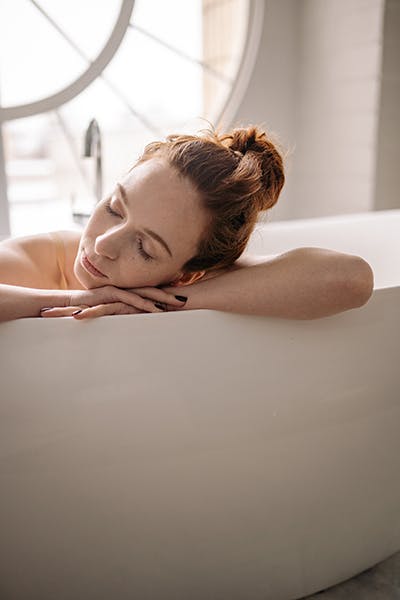
Sleep hygiene is all about building healthy sleep habits and proactively setting up personal routines that can maximize your sleep quality. Being mindful of your bedroom temperature, light, and sounds can significantly impact how well you can sleep through the night.
Being careful of bad habits like consuming alcohol before bed or watching TV while going to sleep can result in poor sleep and cause health problems. Beyond that, it's important to maintain an optimized sleep environment so that you can achieve quality rest.
If your sleep troubles are persistent, it is generally a good idea to visit a doctor for advice, diagnosis, or treatment of any possible sleep disorders. Don't forget, natural sleep aids such as Sandland Sleep can also help you manage your sleep problems.
The three most important aspects of sleep hygiene are building good personal habits around sleeping, sticking to a consistent sleep schedule, and making your sleep environment as conducive to good sleep as possible.
Things like taking a warm shower in the evening and performing relaxation exercises can help. You should avoid long naps during the day so that you can fall asleep easily come bedtime. Creating an appropriate sleep environment will also improve your quality of sleep. That includes the amount of light you expose yourself to before bedtime, surrounding sounds, temperature, and more.
Signs of poor sleep hygiene can include (but are not limited to) regular grogginess with a person waking up restless and tired every morning, feeling fatigued and unmotivated throughout the day, and having low energy.
Rapid mood changes, irritability, and memory or performance issues in your day-to-day routine can also point towards poor sleep hygiene, resulting in poor sleep and causing problems in your functionality.

